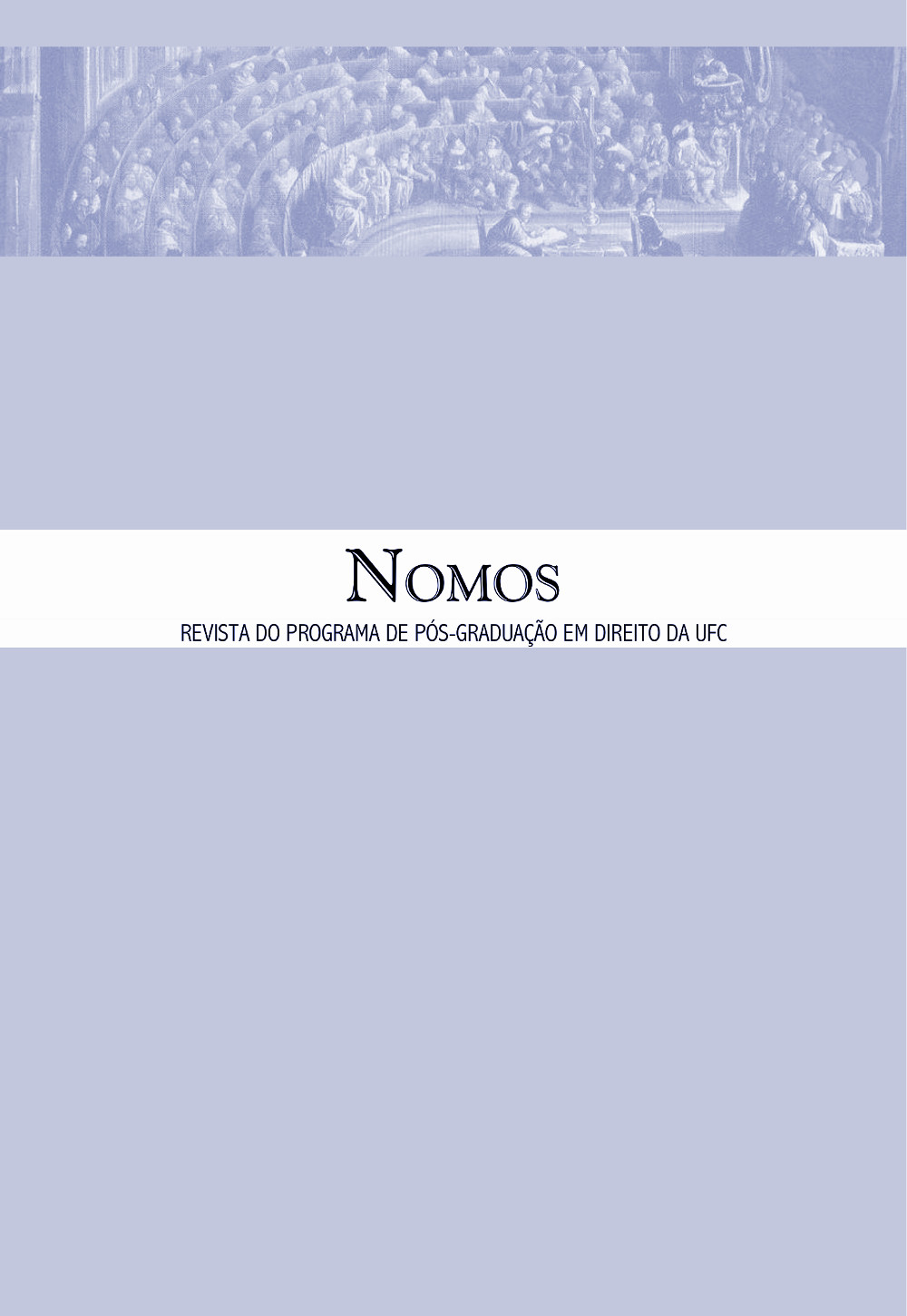ON THE ORIGINS OF RULE OF LAW AND THE META-PHYSICS OF INSTITUTIONS
Palabras clave:
Rule of Law. Institutions. Politics.Resumen
The question concerning the origins or the beginning of the concepts is a philosophical problem that is located at the core of some of the most important reflections in our current time. In specific, the question about the origins of the state – the Rule of Law – is taken as the object of this reflection. It´s known that there is a wide range of answers given to it, mainly by the classical perspective of distinct authors that addressed the issue, in an effort to create theories that could shape an outlook to the social community and explain some important themes which structure the identity of a society, as such, the origins of sovereignty, the legitimacy of the representatives, the declarations of rights and the functioning of the institutions.
The aim of the present paper is to show the mechanisms that work in the “underground” of these concepts or, how does the institutions use a meta-physical production of self-legitimating acts. Problems that can be seen in the “we” of term “We the people”, in the following terms: who is the “we” that precedes the “We the people”, or constitutes the “people”? The state is thought as being “always there”, even before the “we”? One can say that our forebears created the state but, when? And, where did came the power that legitimated our forebears?
On the other hand, from where is originated the legitimacy of the Law? How to enforce the law, remembering that the Law is an authorized and justified force, a force that justifies itself. And, furthermore, the operation that creates the Law tend to be a coup de force, that no prior foundation could, by definition, guarantee, ensure or contradict.
In sum, the search for the origins of the Rule of Law implies in putting in evidence the aporias that constitutes both the Law and Politics and, as a consequence, the uses that Law makes of politics to legitimate itself, and vice versa. Considering that both institutions bear a meta-physical structure of legitimation.
Citas
ARENDT, H. Between the Past and the Future. New York: Penguin Books, 1993.
ARENDT, H. On Revolution. New York: Penguin Books, 2006.
BLOOM, H. Where shall wisdom be found? New York: Riverhead, 2004.
BROOKE, J. L. “Consent, Civil Society, and the Public Sphere in the Age of Revolution and the Early American Republic”. In: PASLEY, J. L.; ROBERTSON, A. W.; WALDSTREICHER, D. Beyond the Founders: New Approaches to the Political History of the Early American Republic. Chapel Hill; London: The University of North Carolina Press, 2004.
DERRIDA, Jacques. Negotiations: interventions and interviews, 1971-2001. Stanford: Stanford University Press, 2002.
DERRIDA, Jacques. Of Grammatology. Baltimore: John Hopkins University Press, 1997.
FIORAVANTI, M. Los decrechos fundamentales. Apuntes de historia de las constituciones. 3. ed. Madrid: Editorial Trotta, 2000.
HAMILTON, A.; MADISON, J. JAY, J. The Federalist Papers. New York: Signet Classics, 2003.
HONIG, B. “Declarations of Independence: Arendt and Derrida on the Problem of Founding a Republic.” In: The American Political Science Review, v. 85, n.1, (97-113), 1991.
HONIG, Bonnie. Emergency politics: paradox, law, democracy. Princeton: Princeton University Press, 2009.
KRAMER, L. D. The People Themselves: popular constitutionalism and judicial review. New York: Oxford University Press, 2004.
Descargas
Publicado
Número
Sección
Licencia
Autores que publicam nesta revista concordam com os seguintes termos:
- Autores mantêm os direitos autorais e concedem à Revista NOMOS o direito de primeira publicação, com o trabalho simultaneamente licenciado sob a Creative Commons Attribution License, que permite o compartilhamento do trabalho com reconhecimento da autoria do trabalho e publicação inicial nesta revista.
- Autores têm autorização para assumir contratos adicionais separadamente, para distribuição não-exclusiva da versão do trabalho publicada nesta revista (ex.: publicar em repositório institucional ou como capítulo de livro), com reconhecimento de autoria e publicação inicial nesta revista.
- Autores têm permissão e são estimulados a publicar e distribuir seu trabalho online (ex.: em repositórios institucionais ou na sua página pessoal) a qualquer ponto antes ou durante o processo editorial, já que isso pode gerar alterações produtivas, bem como aumentar o impacto e a citação do trabalho publicado.
- Autores são responsáveis pelo conteúdo constante no manuscrito publicado na revista.





